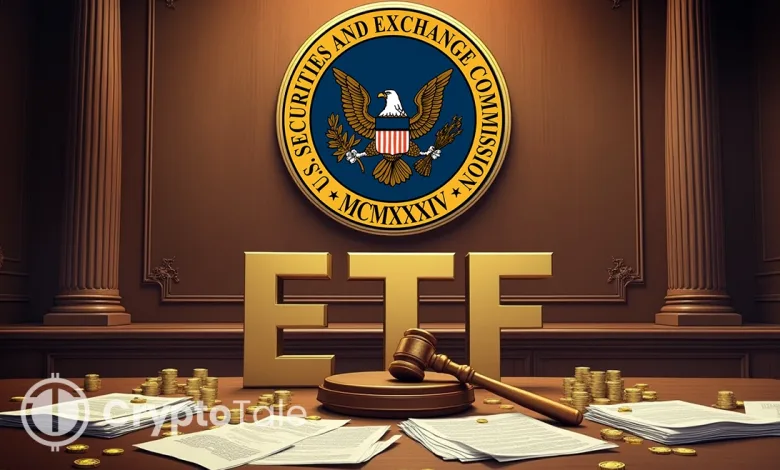SEC to Eliminate 19b-4 Filing From Crypto ETF Approval Process

- SEC proposes simplifying crypto ETF approvals with a single-step S-1 registration process.
- New rule change aims to reduce delays and improve access to crypto ETFs for asset managers.
- SEC approval of Solana’s staking ETF signals a shift toward more diverse crypto ETF options.
While over 70 crypto ETFs have been filed so far, a sparking debate has arisen with the recent tweet by Eleanor Terrett. According to the journalist, the SEC is collaborating with crypto exchanges to streamline the approval process for crypto-related ETFs. The SEC is considering eliminating the current 19b-4 rule-change filing requirement. This would simplify the process, allowing crypto ETFs to be registered through a single-step S-1 registration.
The 75-Day Review Process
The existing process involves two approvals: one of the S-1 and the other of the 19b-4 filing. This may result in prolonged periods of back-and-forth communication between the SEC and the exchanges. The new change would facilitate the process to be faster, resulting in faster approvals and greater efficiency in the regulatory process.
The SEC has begun discussions with exchanges about potential changes to crypto ETF listing requirements. In the proposed plan, qualified crypto ETFs would be required to report only an S-1 form without the 19b-4 filing. The SEC would then review the form within 75 days, and if it met the standards, the listing would be approved. The new process will replace the existing dual approval system, which frequently creates delays.
It could only be applied to crypto ETFs that fit a certain listing criterion established by exchanges. The streamlined structure might make the U.S. a more open door to the issuance of crypto ETFs and enable the entry of asset managers.
SEC Approves First Staking Solana ETF
SEC has greenlighted the REX-Osprey Solana Staking ETF (SSK), the first U.S. ETF with exposure to Solana and its staking rewards. It starts on July 2, 2025, and the SSK ETF provides investors with exposure to staking rewards offered by Solana. It deploys a C-corporation investment structure under the 1940 Investment Company Act, unlike traditional crypto ETFs.
This acceptance is a major divergence from the earlier decision by the SEC, which restricted crypto ETFs more conservative. The approval of staking-enabled ETFs could boost investor trust in digital assets and could result in a shift in market sentiment.
Related: VanEck Registers First BNB ETF in Delaware, Marking History
Proposed Changes to Boost Crypto ETFs
The proposed rule changes follow the growing need for crypto ETFs. Crypto ETFs are gradually developing as the SEC is adjusting to the rise in demand and complexity of the cryptocurrency market. The proposed changes are a significant step toward achieving harmony between innovation and regulation. The new guidance proposed by the SEC might help determine the future of crypto ETFs and make it both accessible and fit with the federal securities laws.




